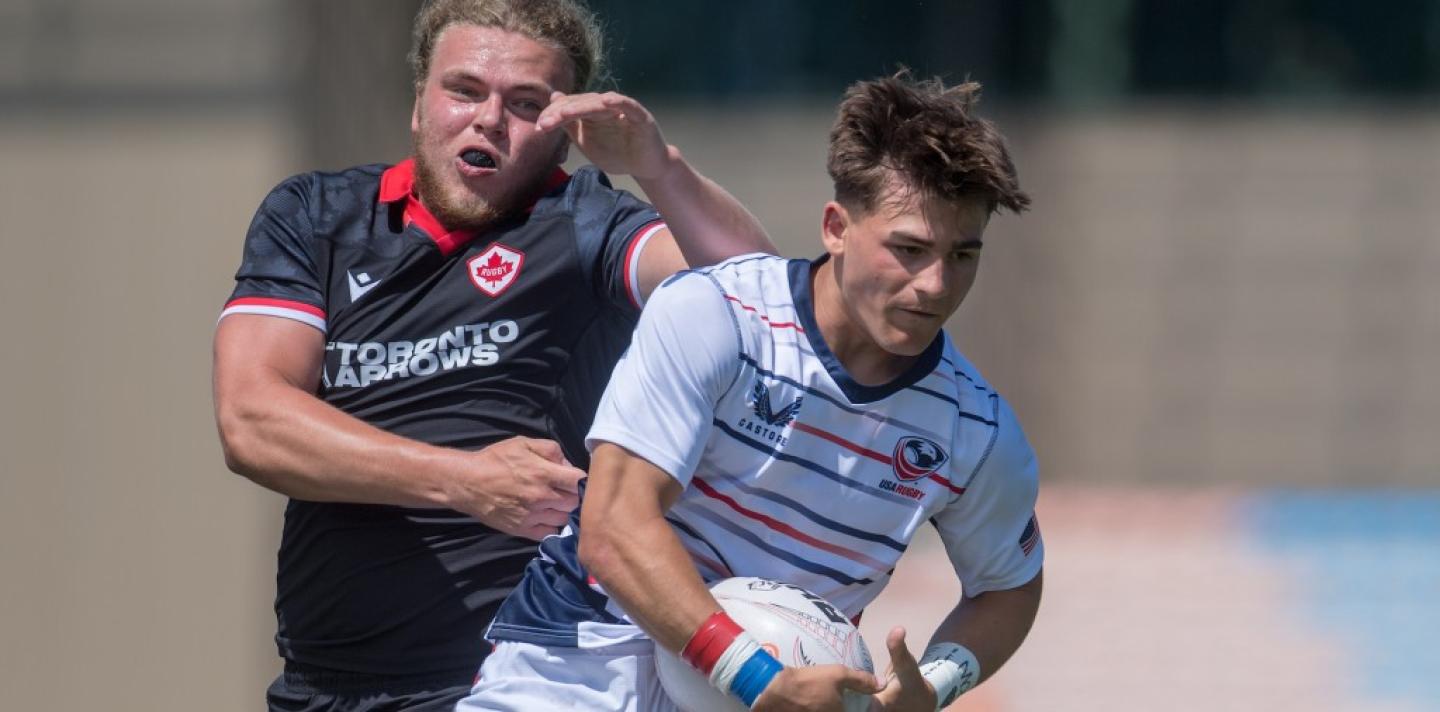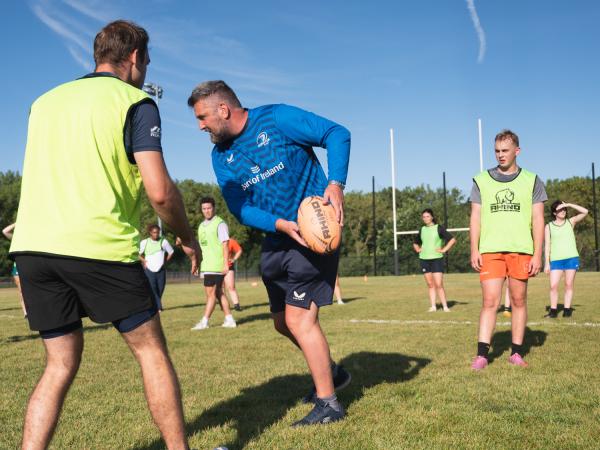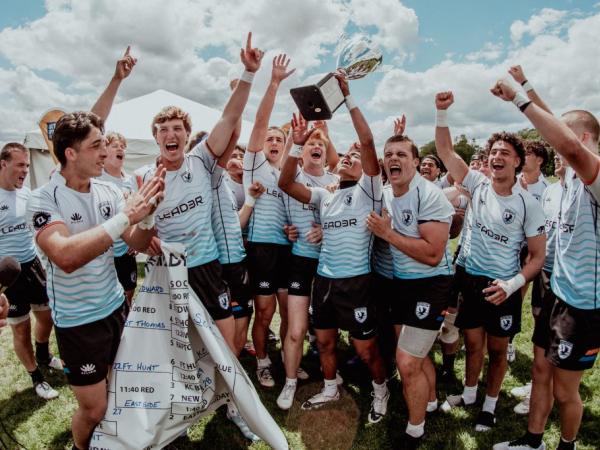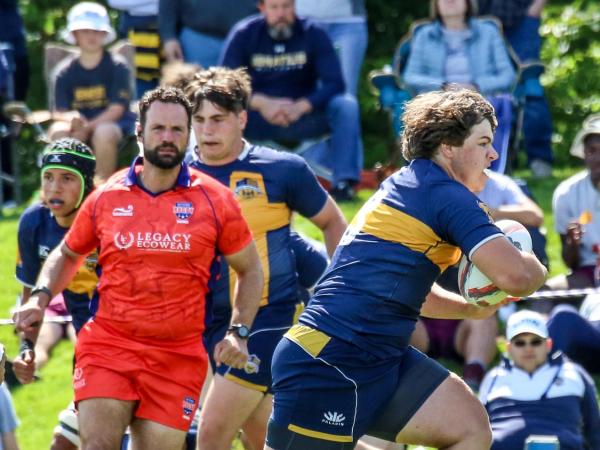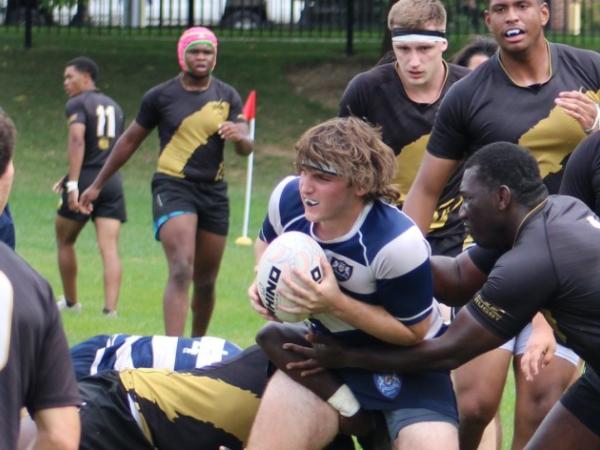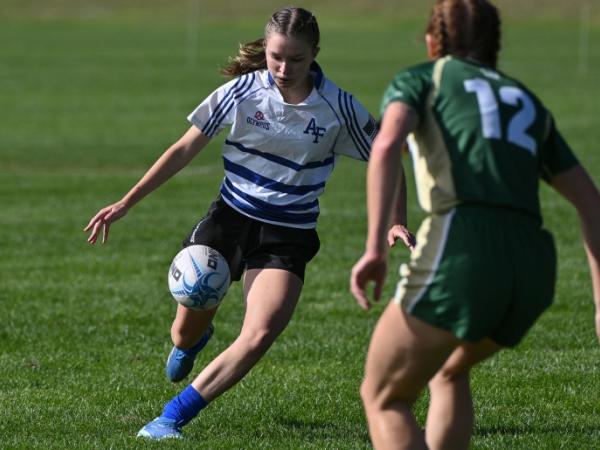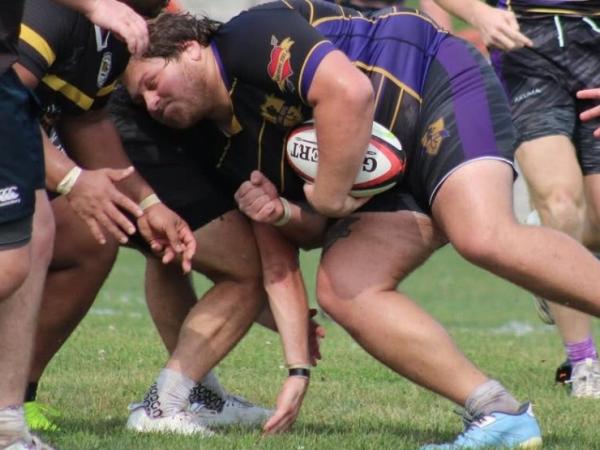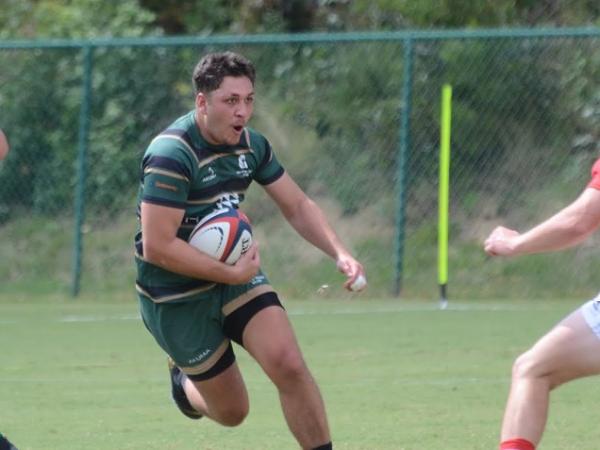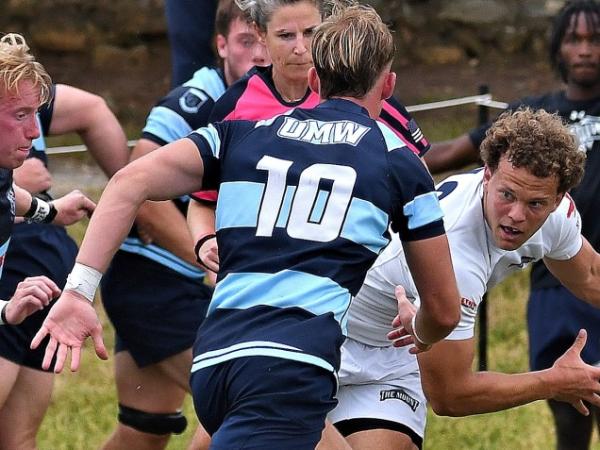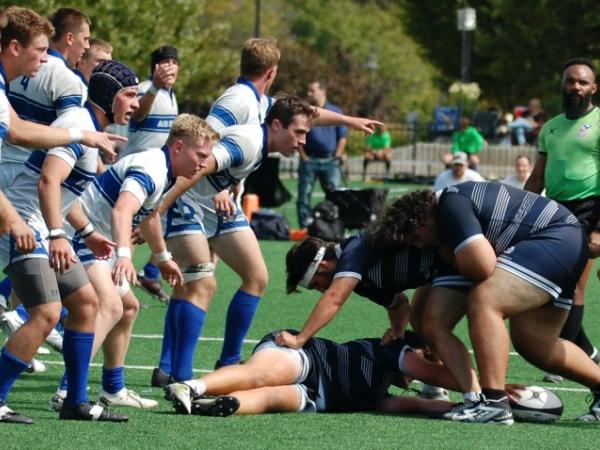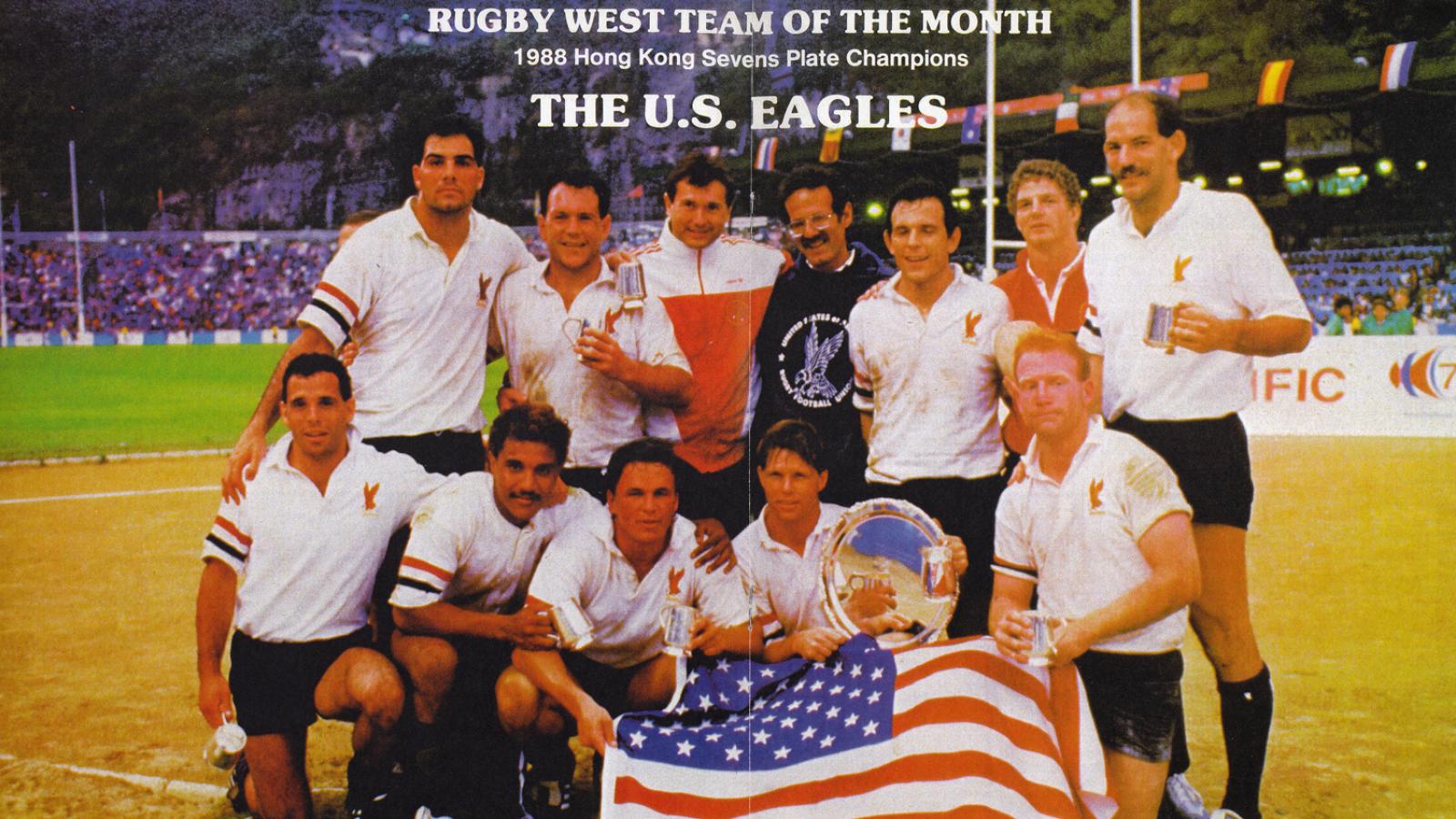An Opinion Column by Alex Goff—USA Rugby’s High Performance issues do not rest with one team or one game. To lament the 15s MNT’s failure to qualify for the 2023 Rugby World Cup is to gloss over a system in which “good enough” is the goal and resting on whatever laurels might still be lying around a day-to-day attitude.
As great as it was for the 15s WNT to win the World Cup in 1991, or be finalists in 1994 and 1998, that was a long time ago. I saw the attitude of “just field a side and win” emerge over 20 years ago in that program, and while the Women’s Eagles have been good, and sometimes quite good, since then, they have never returned to the World Cup final and this year were nowhere near that standard.
As much as we can point to the 7s MNT winning tournaments and finishing high in the Sevens World Series, it remains true also that they have finished 9th and 6th at the Olympics, and while we knew four years ago that, eventually, the big stars would move on, the support behind a replacement plan was weak.
As much as we can say the 7s WNT finished 4th at the recent RWC 7s, anyone delving a little deeper saw a team nowhere near the standard of the top three; a team that was really very fortunate to win a quarterfinal 10-7; a team that, against good teams, could only muster four tries in three matches.
In short, it’s everybody’s problem.
Governance
This weekend the RFU submitted a statement apologizing for the performance of the England team. We’ve seen no such statement from USA Rugby. The consistent lack of consistency over developing international players is obvious. Being beholden to World Rugby hasn’t helped, but when you’re in the middle of strutting around saying “we’re hosting the World Cups in 2031 and 2033” you better damn well have your high performance ducks in a row.
Lack of developing American-born talent. Lack of support for age-grade. Lack of understanding about coaching team dynamics. Lack of a plan to nurture and develop talented American coaches. All of these point to a need for a change. CEO, Head of High Performance should step down and should be replaced by people who are ingrained in the American game and have American-focused goals.
Coaches
Most USA coaches have a period where things go well, and then things stop going well. For any sports coach, the uniqueness of the coach’s personality can be critical to this—the hard-line guy replaces the easygoing guy and the players fall into line, only to late chafe under the regime. Then a more easygoing guy comes in and the players feel free to express themselves, until discipline falls away.
While I know these coaches relatively well, I don’t know them so well to give you a deep dive into each coach’s psyche. What I can tell you is what the results have been, some of the issues surrounding the team, and a few more general thoughts.
General thoughts like, if you have an easy-going coach you need a hard-liner as an assistant, someone who the Head Coach is loyal to so you develop a coaching team. Even if it’s just two coaches, you need a team. Same goes for the other types of coaches—you need a bit of a yin and yang combination.
So let’s look at the four senior national team players, shall we?
Mike Friday. The toughest one to talk about in some ways because he’s had the most success. He helped build the USA men’s 7s team into a world contender, and while the Eagles did falter at the Olympics and the World Cup, they also finished as high as 2nd in the World Series. Since he took over the USA team in the 2014-15 season, Friday’s team has finished 7th once, 6th three times, 5th three times, and 2nd. His Eagles have won only three tournaments in that time, but reached the podium 15 times.
The knock on him? He doesn’t live full-time in the USA and as such relies heavily on his assistants. And we knew that several players were going to retire after 2019 and while Friday made some moves to blood new players, there was no cohesive plan to get a USA development group playing high-level 7s. (Hey Goff, COVID. My answer: yes COVID, so? We could have found competition for players).
Emilie Bydwell. Bydwell’s hiring was quick and really a lateral move as she was already working for USA Rugby. So when Chris Brown stepped away you got the feeling USA Rugby was like “what do we do now?” And then grasped at the first option. A terrific player when she played and a smart rugby person, Bydwell is not an experienced high-level 7s coach, and despite having some really talented players available to her, fielded a team that can’t score and plays a predictable offense.
But is this a case of positioning a coach to be developed within the international arena, rather than left in the deep end?
Rob Cain. Successful in the nascent Women’s Premier League in England, Cain showed up with good humor and an aura about him that seemed to show that he cared about his players. I’ve had a few insights into some aspects of the team and I have to say I didn’t get an impression of a team with a sense of urgency. Cain isn’t a tough guy, and perhaps as a result expectations have lowered. Certainly this last World Cup players looked unfit, the attack was moribund, and displays of the intense desire you need to succeed at the international level were few. I made this video to spell it out—certainly great players show they are great, but a great coach brings it out of everyone.
Here the results are clear. Under Cain the USA had its worst performance in a Women’s Rugby World Cup ever (1-3), and overall the USA has been 5-17. In those 22 gams the USA has scored three or more tries just four times, and scored one or zero tries 12 times. Their ranking has dropped from #5 to #7. Their social media presence was entertaining, but that’s not why they were in New Zealand.
Four observations about the women’s teams:
1. The lack of ability to score and the lack of endeavor in the USA’s attack was evident in 2019, but it’s worth noting that in the six games leading into August, the Eagles scored five tries, but in the following six games they scored 14 … so maybe there was a bit of an improvement. But you can also point to slightly lesser opposition (Scotland, Japan) for the biggest reason for that improvement.
2. Cain played musical fly halves throughout 2020 only to not use any of them and use Gabby Cantorna, who is a center who can kick. Was she the playmaker who could unleash the USA talent? In addition, the word was that the USA would kick more to control territory, but never really did.
3. According to reports USA WNT players were expected to choose between 7s and 15s. This is a silly approach considering a) the depth of top players in the USA and b) other nations, top rugby nations, are fine with having their players double-up. To not have Alex Kelter in the 7s World Cup was to the detriment of the program. Ilona Maher was in New Zealand for the 15s World Cup … to provide social media coverage for USA Rugby. She should have been playing.
4. Most of the USA 15s team played in the Women’s Premier League in England and were highly-regarded. Kate Zackary was captain and best player on her club. Hope Rogers was named on the 2022 World Rugby 15. Kelter was a star for Saracens in their championship run, and Rachel Johnson was a force for Exeter. There are more who stood out, also. And yet they couldn’t play well as a group for the USA? The team, as a whole, looked slow and not fit enough to keep up with Canada or (thank Heaven for small mercies that the USA didn’t face them) New Zealand. Upon whom does that responsibility lie?
Gary Gold. A little like Cain in that he comes across as a good-guy coach but I also know he can have a tough side. What Gold did was revamp his staff again and again. He brought in Scott Lawrence for the defense only to basically replace him. You need a team in your coaching staff and it didn’t seem like that was happening. The adventure and risk-taking of the 2018 team that beat Scotland for the first time ever and beat Samoa for the first time ever was gone. Instead the Eagles had a team of big, powerful runners and kicked, which is nice if you’re fast and you can jump really high but not so nice if you’re wide and strong and like to blast through people.
Losing the kicking battle and being burned on counter-attacks and trying to sit on tiny leads resulted in series losses to Uruguay, Chile, and Portugal. It’s like they never learned.
Gold, by the way is the USA MNT’s winningest coach with a 19-13-1 record. It’s a remarkable achievement that carries with it two ARC titles He did all of that as a stabilizing force after the tumult of John Mitchell’s short reign (oh, and another financial crisis). But sometimes the thing that worked before doesn’t work anymore.





